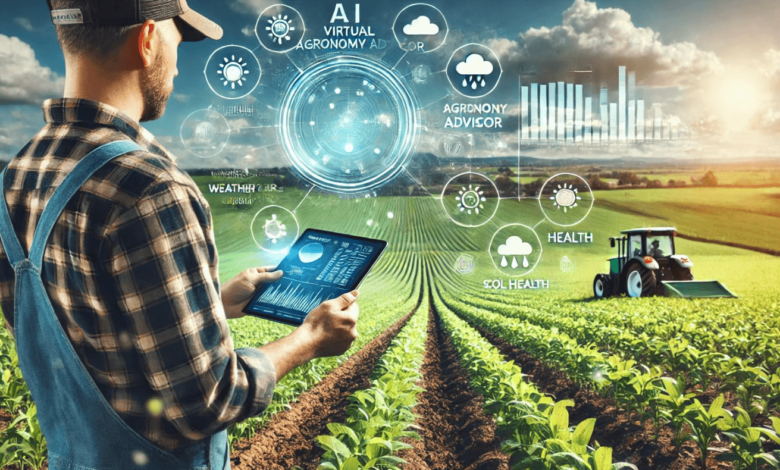Artificial Intelligence in Agriculture: Enhancing Productivity and Sustainability

Artificial Intelligence is transforming agriculture by introducing precision farming techniques that enhance productivity and sustainability. Through advanced data analytics and smart resource management, AI optimizes irrigation and nutrient delivery. This integration not only improves crop yields but also addresses environmental concerns. As the agricultural sector embraces these technologies, questions arise about the long-term implications for food security and ecological balance. What challenges and opportunities lie ahead in this evolving landscape?
The Rise of Precision Farming
As agricultural demands increase in response to a growing global population, precision farming has emerged as a transformative approach that leverages technology to optimize crop production.
This methodology employs smart irrigation systems and robust data integration techniques, allowing farmers to monitor soil conditions and water usage in real-time.
Such innovations not only enhance yield but also promote sustainable practices, aligning agricultural productivity with ecological responsibility.
Leveraging Predictive Analytics for Crop Management
While traditional agricultural practices often rely on historical data and anecdotal evidence, leveraging predictive analytics enables farmers to make data-driven decisions that enhance crop management.
By integrating weather forecasting with real-time data, farmers gain critical insights into optimal planting schedules and resource allocation.
These data-driven insights foster improved yield predictions, ultimately promoting sustainable practices that align with the evolving needs of modern agriculture.
AI-Driven Solutions for Resource Optimization
AI-driven solutions have emerged as pivotal tools in optimizing resource utilization within agriculture, enhancing efficiency and sustainability.
Utilizing data driven irrigation systems, farmers can precisely manage water resources, minimizing waste while maximizing crop yields.
Additionally, automated nutrient management technologies ensure that plants receive optimal nutrient levels, promoting healthier growth and reducing environmental impact.
Together, these innovations significantly advance agricultural practices towards a more sustainable future.
The Future of Sustainable Agriculture With AI
The integration of artificial intelligence into agriculture is poised to revolutionize sustainable farming practices, addressing pressing challenges such as climate change, resource scarcity, and food security.
Automated farming systems and smart irrigation technologies enhance efficiency, reduce waste, and optimize resource use.
As these innovations proliferate, they promise a future where sustainable agriculture flourishes, empowering farmers to achieve both productivity and environmental stewardship.
Also read: AI Voice Synthesis: How It Works and Why It Matters
Conclusion
Ironically, as artificial intelligence cultivates the fields of the future, it simultaneously uproots traditional farming practices. While farmers harness AI to maximize yields and minimize waste, one might ponder: is technology truly the savior of sustainability, or merely a sophisticated tool that perpetuates the cycle of dependency? In this intricate dance between innovation and nature, the agricultural landscape stands at a pivotal juncture, where the promise of AI must be tempered by a commitment to ecological stewardship.




